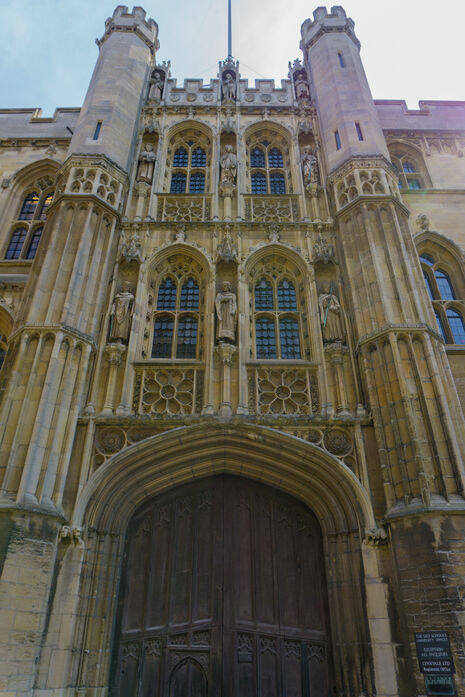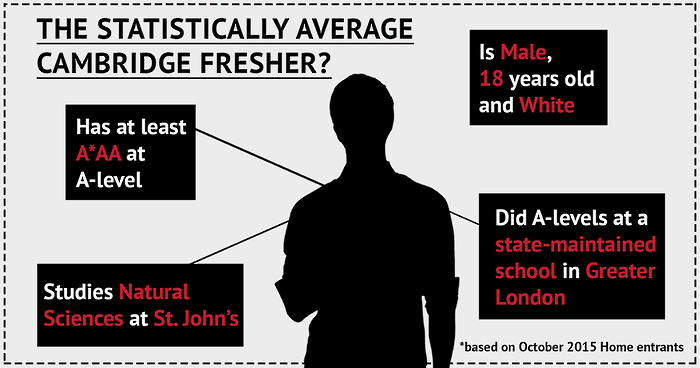Oxbridge failing disadvantaged students, says access chief
Efforts of Oxford and Cambridge Universities are improving, but more needs to be done, according to Les Ebdon of the Office for Fair Access

Speaking at the University of Buckingham’s Festival of Higher Education yesterday, the Director of Office for Fair Access (OFFA), Les Ebdon, commented that Oxford and Cambridge must “do more work than anyone else” to improve access and opportunities.
Ebdon criticised the universities for relying on high entry requirements and failing to use data systematically on applicants’ backgrounds, resulting in very few students coming from ethnic minorities and economically disadvantaged backgrounds.
While acknowledging the fact that both universities are now admitting the highest level of state school students in over 30 years, Ebdon stated that: “It’s a real mountain to climb. Part of that mountain, of course, is the fact that typically, Oxbridge are asking for three A*s for entry, and there are very few people in state schools who get that”.
A Varsity report last year would appear to corroborate the comments made by Ebdon, showing that of the intake of Freshers to Cambridge in 2015, 37.7 per cent went to independent schools, despite the fact that they are attended by just 18 per cent of students over 16 years old nationwide.
According to the report, a disproportionate amount of students came from the most affluent areas of the UK, with 44.3 per cent of students coming from either Greater London or the South East regions, and over four times as many students coming from Greater London than from Wales, Scotland, and Northern Ireland combined.
Although a record number of students admitted in that year identified as being from an ethnic minority, the report also showed that intake was still significantly lower than the national average – 79.2 per cent of new entrants were white, compared to 73.6 nationwide.
Indeed, in its student statistics for 2015/16, the University had only 119 UK undergraduates who identify as black, excluding mixed; from a total of 9,342 this equates to just over one per cent, compared to seven per cent of the UK Home student population for that year.
Despite these imbalances, last year the University attempted to lower its targets for intake from areas of low participation from 13 per cent to 12.5 per cent, a move that Ebdon claimed to have “personally rejected”.
Last year the colleges also rejected a proposal to give lowered offers to students from disadvantaged and underrepresented backgrounds, and keep instead the standard A*A*A and A*AA offers.
Speaking to Varsity, a spokesperson from the University confirmed that admissions decisions are solely based on academic considerations, stating that: “We aim to widen participation whilst maintaining high academic standards. The greatest barrier to participation at selective universities for students from disadvantaged backgrounds is low attainment at school”.
They were keen to emphasise that the University spends £5 million per year on access measures, including “focused work with BME students; children in care; students eligible for free school meals and from disadvantaged socio-economic backgrounds; mature learners; and students in schools and colleges which have not historically sent students to Cambridge”.
In contrast to Les Ebdon’s suggestion that Cambridge must do more to improve access, the spokesperson said that: “widening participation further will require Government, schools, universities, charities, parents and students to work closely together”
 News / SU reluctantly registers controversial women’s soc18 December 2025
News / SU reluctantly registers controversial women’s soc18 December 2025 Features / Should I stay or should I go? Cambridge students and alumni reflect on how their memories stay with them15 December 2025
Features / Should I stay or should I go? Cambridge students and alumni reflect on how their memories stay with them15 December 2025 News / Dons warn PM about Vet School closure16 December 2025
News / Dons warn PM about Vet School closure16 December 2025 News / Cambridge study finds students learn better with notes than AI13 December 2025
News / Cambridge study finds students learn better with notes than AI13 December 2025 News / Uni registers controversial new women’s society28 November 2025
News / Uni registers controversial new women’s society28 November 2025










